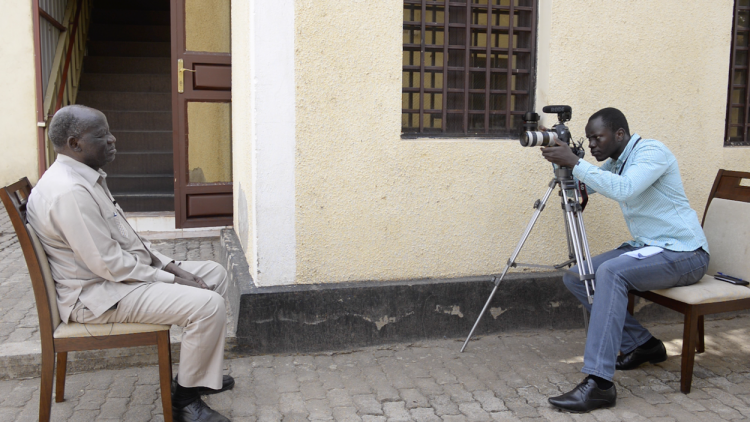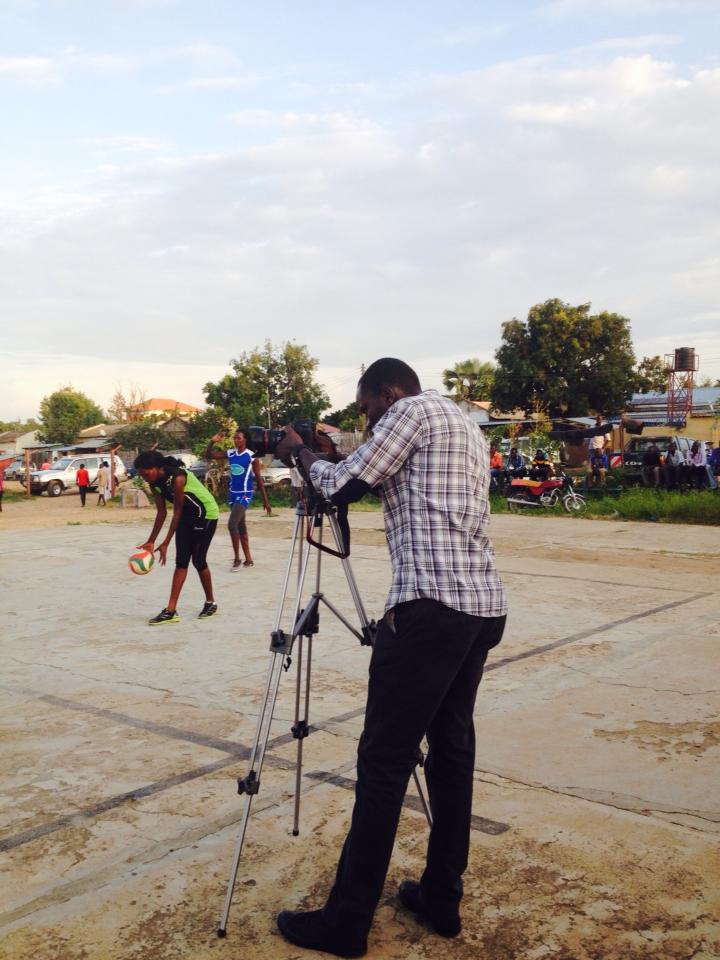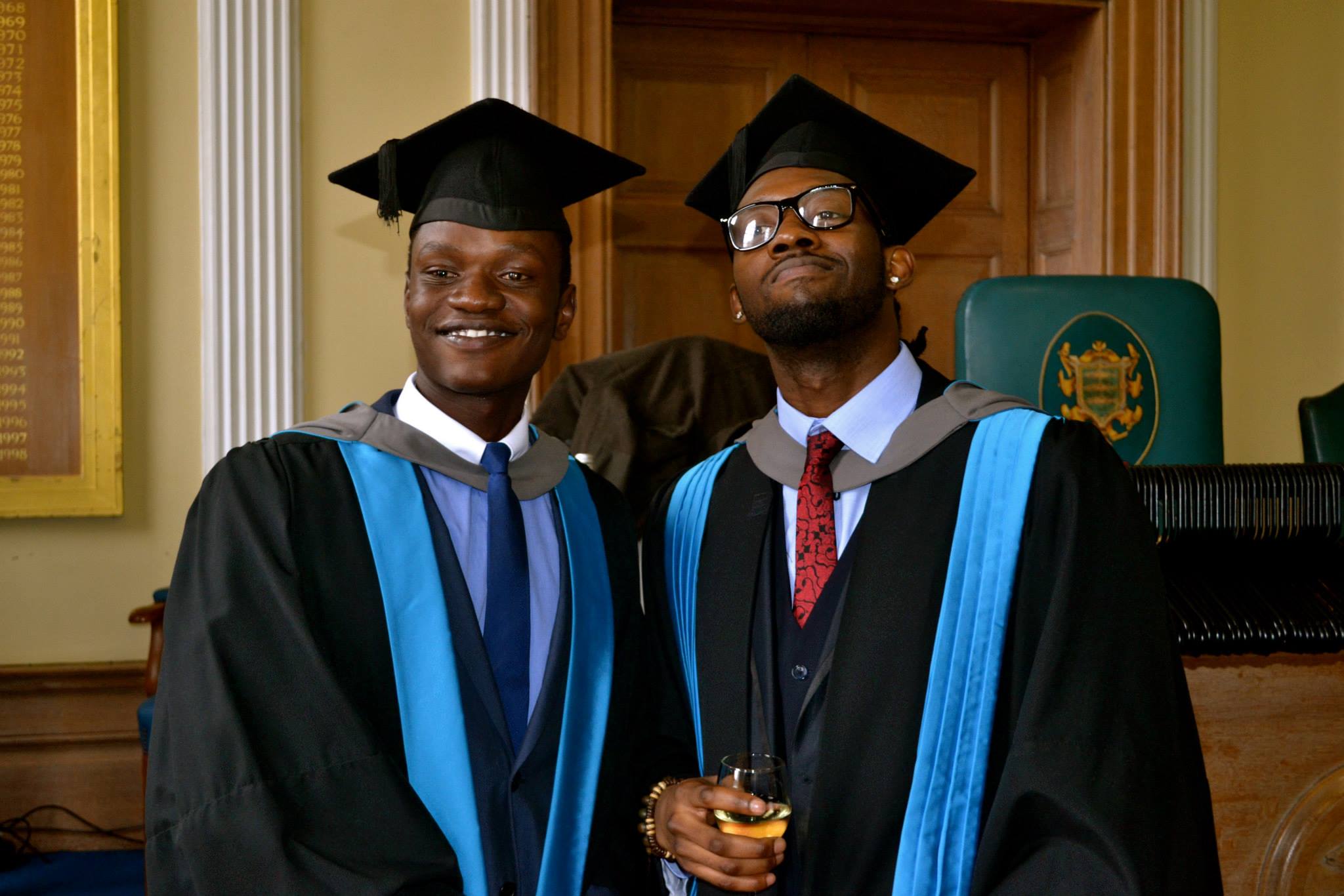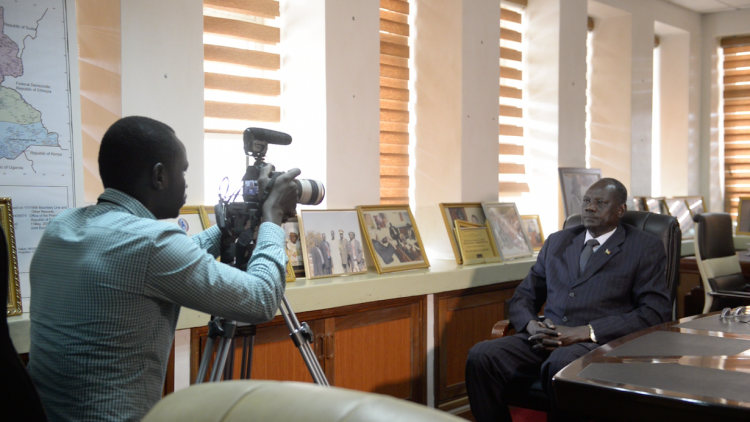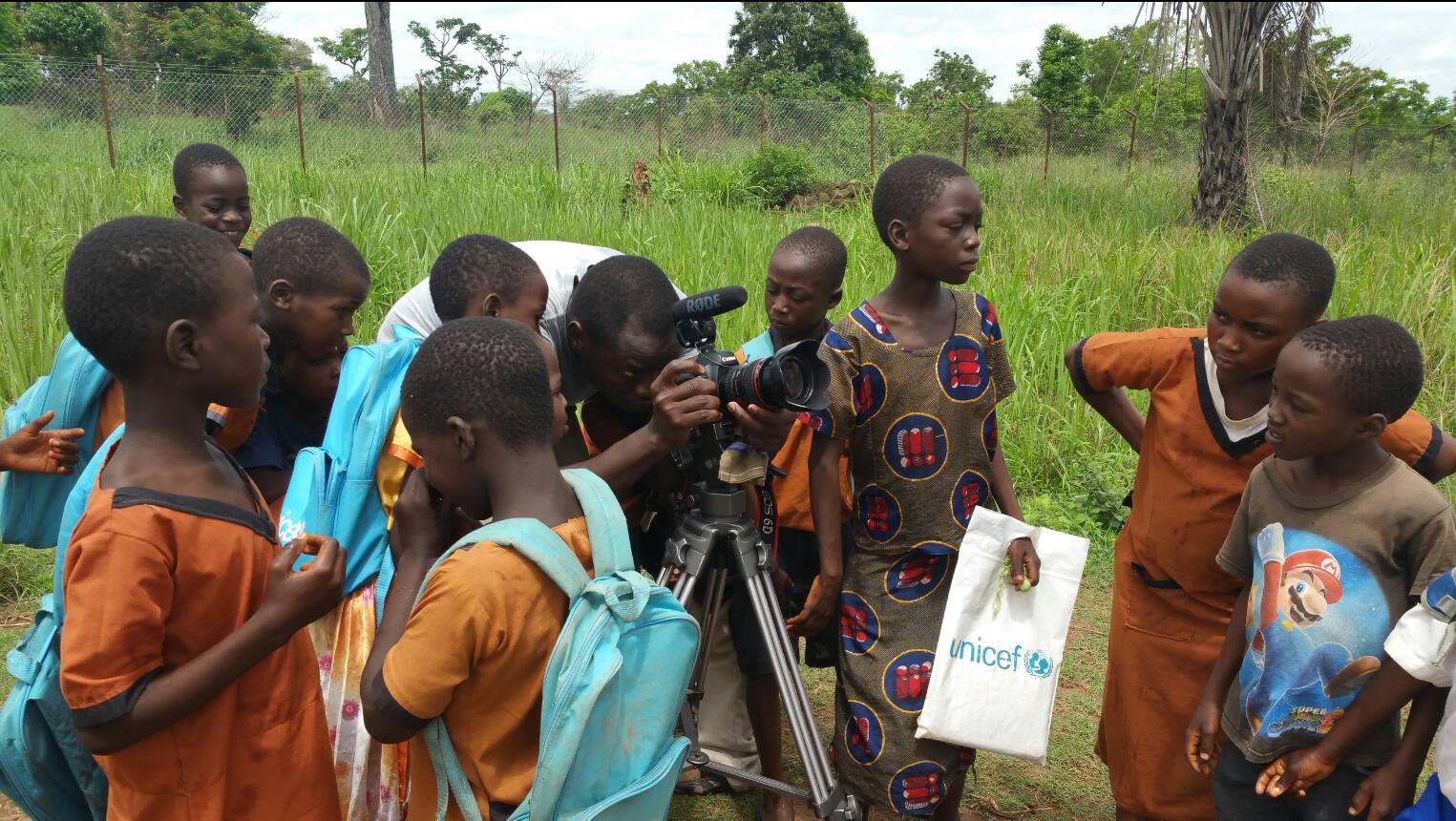‘I wish there is something more I could do to ensure that South Sudan’s tomorrow is brighter than its present. Of course I am doing the best I can as a filmmaker but it feels like a drop in an ocean to be honest.’
Sam Lukudu is a filmmaker and journalist. The best he can do – the drop in the ocean – is his documentary The Trial. It is about the ethnically-charged war that took place in 2013, two years after South Sudan’s independence and it is about, more specifically, the trial of four senior members of the ruling party who were accused of a coup.
He accessed the top politicians by simply stressing the importance of the project in terms of the country’s history and his commitment to a fair and balanced portrayal of what happened.
‘That trial was a historic event. Nothing like that has ever happened in South Sudan. For top politicians or senior members of the ruling party to be taken to court that way, was something out of the ordinary. I was witnessing history, reason why I decided to document it and tell that story through the film.
‘History has a tendency of repeating itself.’
‘I felt the need to do something. I felt the need to remind the people of my country of what happened in December 2013 through this film, because sometimes history has a tendency of repeating itself and what happened is something that I would never like to see happening again.’
https://www.youtube.com/watch?v=TSutpKnl3tA
Sam has lived through some of the trouble. Born in Juba, South Sudan in 1988, Sam remembers his childhood with a grim vividness: the days when his mother cradled him on the veranda while she looked at the blue Juba skies; the days when he heard gunfire, and saw a thick smoke billowing skyward and heard people screaming while running for shelter; the day they had to take the plane from Juba and move to Khartoum and he saw anguish etched on his mother’s face. He didn’t see his home again till 2006. That period away from Juba brought a deep homesickness.
‘My people suffered, we really suffered.’
‘It makes me sad really. Each and every day it does. One can’t really help but feel that way’. The pain that war brought to the people of his country still grates. ‘My people suffered, we really suffered, and the suffering went on for as long as I remember.’
The 2013 war was fuelled by ethnic hatred and political distrust amongst South Sudan leadership. The war saw more than 50,000 people killed according to UN reports and more than 2.2 million displaced with 750,000 fleeing to neighbouring countries. Now, it’s estimated three million are suffering starvation.
It was this that drove the graduate of Electronic Media from Daystar University in Nairobi, who has an MA in film from Kingston University in 2012 to do whatever he could to produce his film and let the world know about what happened. ‘I had to borrow money from family, friends and colleagues just to make sure that the film is produced.’
‘In five years’ time, I see myself as a successful entrepreneur, who has enough money to fund his films.’
Sam enlightens. ‘To this very day I am still trying to figure out how I am going to pay my debts, but you know what? I sincerely believe that this film is historic and of critical importance to my country, so no regrets whatsoever even if for the next few years I’ll still be paying back the debt, I think it’s worth it.’
After the recent war, and challenged by low income in Juba, Sam moved back to Khartoum to do business. He believes once financially stable he will be able to finance his films in the future. ‘I’m currently working on becoming an entrepreneur.’ He says. ‘I’m trying to get into business for a better tomorrow as far as my passion for filmmaking is concerned because in five years’ time, I see myself as a successful entrepreneur, who has enough money to fund his films, and help other struggling independent artists who aspire to make South Sudan and Africa a better place through the medium of creativity.’
Sam is concerned about the youth and the progress of his country, ‘If the youngsters of my country do not realise the importance of coming together and uniting, then nothing much will happen in the near future.
‘I believe strongly that the way forward is for the people of my generation to shun tribalism and all other sorts of negative habits that divide us as a nation.’
But he’s not naïve that his actions will make him universally liked. ‘Let’s be honest and tell the truth… people like me – whistleblowers, activists and the like, are not fancied by the vast majority of those who are affected badly by the whistles the likes of me blow.’
‘They’ll end up finding a way to silence us.’
He has uncertainties for the worse. ‘In most cases, when the whistleblowers blow, they target people who are very powerful and influential, and most of them don’t like that, so they’ll end up finding a way to silence us by whatever means they can.’
But despite the difficulties, Sam is positive about what he’s chosen to do. ‘I like it, I actually take pride in being both and as a social activist fulfilling my purpose… that is ultimately what life should be all about.’
Check out more from Sam Lukudu on YouTube here

